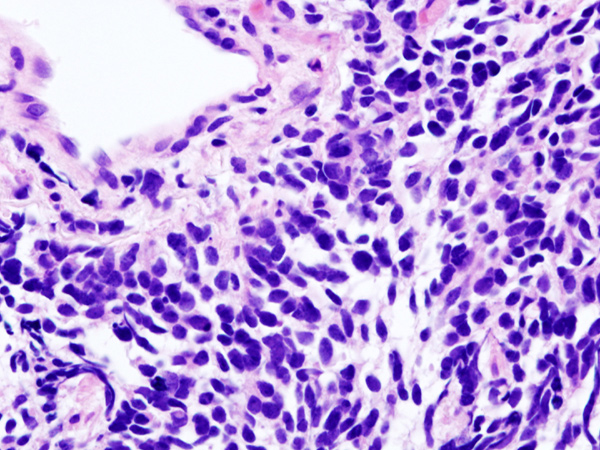Expanding Immunotherapy to Small Cell Lung Cancer
The FDA has expanded the use of the immunotherapeutic nivolumab to treat certain patients with small cell lung cancer.

Nivolumab (Opdivo) is a type of immunotherapeutic called a checkpoint inhibitor. The U.S. Food and Drug Administration (FDA) recently approved expanding its use to include treating certain patients with small cell lung cancer, which is the second most common type of lung cancer.
Under the expanded approval, nivolumab can be used for the treatment of metastatic small cell lung cancer that has progressed after a patient has received platinum-based chemotherapy and at least one other treatment.
Before this approval, nivolumab had already been approved for treating certain patients with non-small cell lung cancer and seven other types of cancer: bladder cancer, colorectal cancer, head and neck cancer, Hodgkin lymphoma, kidney cancer, liver cancer, and melanoma.
Lung cancer is the second most commonly diagnosed cancer in the United States, with 228,150 new cases expected in 2019, according to data from the National Cancer Institute (NCI). There are two main types of lung cancer: non-small cell lung cancer (NSCLC), which accounts for up to 85 percent of lung cancers, and small cell lung cancer (SCLC), which accounts for up to 15 percent of cases.
The outlook for patients diagnosed with small cell lung cancer is poor; the five-year relative survival rate is just 5 percent to 10 percent, according to the NCI. For those with metastatic disease, it is even worse. Median survival is just six to 12 months with the treatments available before the approval of nivolumab.
According to the FDA, the approval of nivolumab for metastatic small cell lung cancer was based on data from a group of patients enrolled in the phase I/II CheckMate-032 clinical trial. Among 109 patients whose metastatic small cell lung cancer had progressed after platinum-based chemotherapy and at least one other treatment, nivolumab led to partial or complete tumor shrinkage in 13, which is 12 percent. The responses lasted six months or longer for 77 percent of these 13 patients and 12 months or longer for 62 percent.
Nivolumab has broad utility in the treatment of cancer because it does not target the cancer directly; rather it works by releasing a brake called PD-1 on cancer-fighting immune cells called T cells. Nivolumab releases the PD-1 brake by preventing it from being engaged by two proteins called PD-L1 and PD-L2. Once the PD-1 brake is released, the T cells can destroy cancer cells.
The FDA approval was rendered on Aug. 16, 2018.
